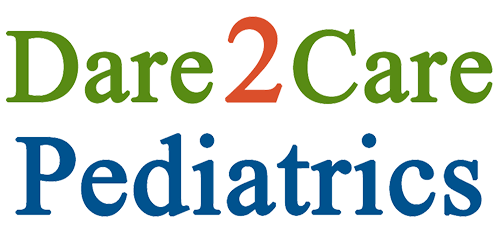Dare2Care Pediatrics stands as a beacon of compassionate care and comprehensive support for children struggling with eating disorders. By combining medical expertise, psychological insight, and a commitment to family-centered care, Dare2Care Pediatrics aims not only to treat eating disorders but to nurture the overall well-being of every child under its care. In employing this comprehensive strategy, Dare2Care Pediatrics demonstrates its dedication to the health and happiness of the next generation.
Eating disorders are complex mental health conditions that can affect children and adolescents. These disorders, which involve disturbances in eating behaviors and attitudes toward food, can have significant physical, psychological, and social consequences. Early identification and intervention are crucial for successful treatment and recovery. This article explores the different types of eating disorders, their impact on pediatric patients, diagnostic criteria, treatment approaches, and the importance of a multidisciplinary approach in managing these disorders.
Types of Eating Disorders:
- Anorexia Nervosa: Characterized by severe weight loss, fear of gaining weight, distorted body image, and a relentless pursuit of thinness. Individuals with anorexia often restrict their food intake and may engage in excessive exercise.
- Bulimia Nervosa: Involves recurrent episodes of binge eating followed by compensatory behaviors such as self-induced vomiting, excessive exercise, or the misuse of laxatives or diuretics. Individuals with bulimia may experience a sense of loss of control during binge episodes.
- Binge Eating Disorder: Marked by recurrent episodes of binge eating without compensatory behaviors. Individuals with binge eating disorder may experience feelings of guilt, shame, and distress after eating large quantities of food.
Eating disorders can have profound physical and psychological effects on children and adolescents. Nutritional deficiencies, electrolyte imbalances, gastrointestinal complications, growth delays, and hormonal disturbances are common physical consequences. Psychologically, eating disorders can lead to depression, anxiety, social isolation, low self-esteem, and impaired academic performance.
Diagnosing eating disorders in pediatric patients involves a thorough assessment by healthcare professionals. Diagnostic criteria outlined in the Diagnostic and Statistical Manual of Mental Disorders (DSM-5) are used to determine the presence of an eating disorder. The evaluation typically includes a comprehensive medical history, physical examination, psychological assessment, and laboratory tests to assess nutritional status.
Successful treatment of eating disorders requires a multidisciplinary approach involving healthcare providers specializing in pediatrics, psychology, nutrition, and family therapy.
Treatment plans are individualized and may include:
- Medical Stabilization: Addressing any immediate physical complications and restoring nutritional balance under medical supervision.
- Psychotherapy: Cognitive-behavioral therapy (CBT), dialectical behavior therapy (DBT), and family-based therapy (FBT) are commonly used to address the underlying psychological factors contributing to the eating disorder.
- Nutritional Counseling: Working with registered dietitians to develop a balanced and individualized meal plan, promote healthy eating behaviors, and address nutritional deficiencies.
- Medication: In some cases, medication may be prescribed to manage comorbid conditions such as depression or anxiety.
Collaboration among healthcare professionals, parents, and caregivers is vital in the treatment of pediatric eating disorders. A multidisciplinary team can provide comprehensive care, addressing both the physical and psychological aspects of the disorder. Regular communication, coordination of care, and ongoing support are essential in promoting recovery and preventing relapse.
Early identification and intervention significantly improve outcomes in pediatric eating disorders. Parents, caregivers, educators, and healthcare providers should be vigilant for signs and symptoms such as significant weight loss, excessive preoccupation with food or body image, changes in eating habits, and social withdrawal. Promoting body positivity, fostering a healthy relationship with food, and providing education about the dangers of disordered eating are crucial in preventing the development of eating disorders.





